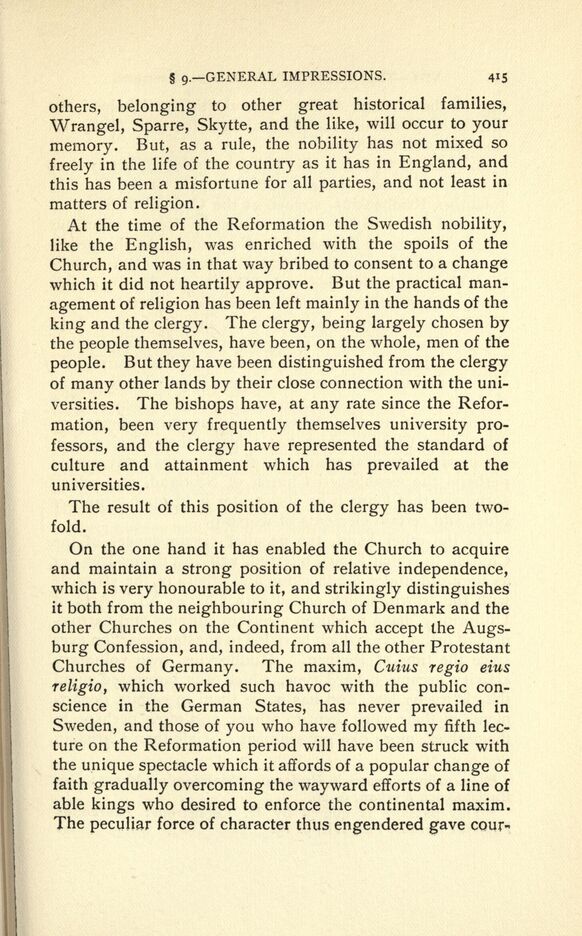
Full resolution (JPEG) - On this page / på denna sida - VIII. The Church in the last century (1811—1910 A.D.)

<< prev. page << föreg. sida << >> nästa sida >> next page >>
Below is the raw OCR text
from the above scanned image.
Do you see an error? Proofread the page now!
Här nedan syns maskintolkade texten från faksimilbilden ovan.
Ser du något fel? Korrekturläs sidan nu!
This page has never been proofread. / Denna sida har aldrig korrekturlästs.
9 . GENERAL IMPRESSIONS. 415
others, belonging to other great historical families,
Wrangel, Sparre, Skytte, and the like, will occur to your
memory. But, as a rule, the nobility has not mixed so
freely in the life of the country as it has in England, and
this has been a misfortune for all parties, and not least in
matters of religion.
At the time of the Reformation the Swedish nobility,
like the English, was enriched with the spoils of the
Church, and was in that way bribed to consent to a change
which it did not heartily approve. But the practical man
agement of religion has been left mainly in the hands of the
king and the clergy. The clergy, being largely chosen by
the people themselves, have been, on the whole, men of the
people. But they have been distinguished from the clergy
of many other lands by their close connection with the uni
versities. The bishops have, at any rate since the Refor
mation, been very frequently themselves university pro
fessors, and the clergy have represented the standard of
culture and attainment which has prevailed at the
universities.
The result of this position of the clergy has been two
fold.
On the one hand it has enabled the Church to acquire
and maintain a strong position of relative independence,
which is very honourable to it, and strikingly distinguishes
it both from the neighbouring Church of Denmark and the
other Churches on the Continent which accept the Augs
burg Confession, and, indeed, from all the other Protestant
Churches of Germany. The maxim, Cuius regio eius
religio, which worked such havoc with the public con
science in the German States, has never prevailed in
Sweden, and those of you who have followed my fifth lec
ture on the Reformation period will have been struck with
the unique spectacle which it affords of a popular change of
faith gradually overcoming the wayward efforts of a line of
able kings who desired to enforce the continental maxim.
The peculiar force of character thus engendered gave cour-
<< prev. page << föreg. sida << >> nästa sida >> next page >>